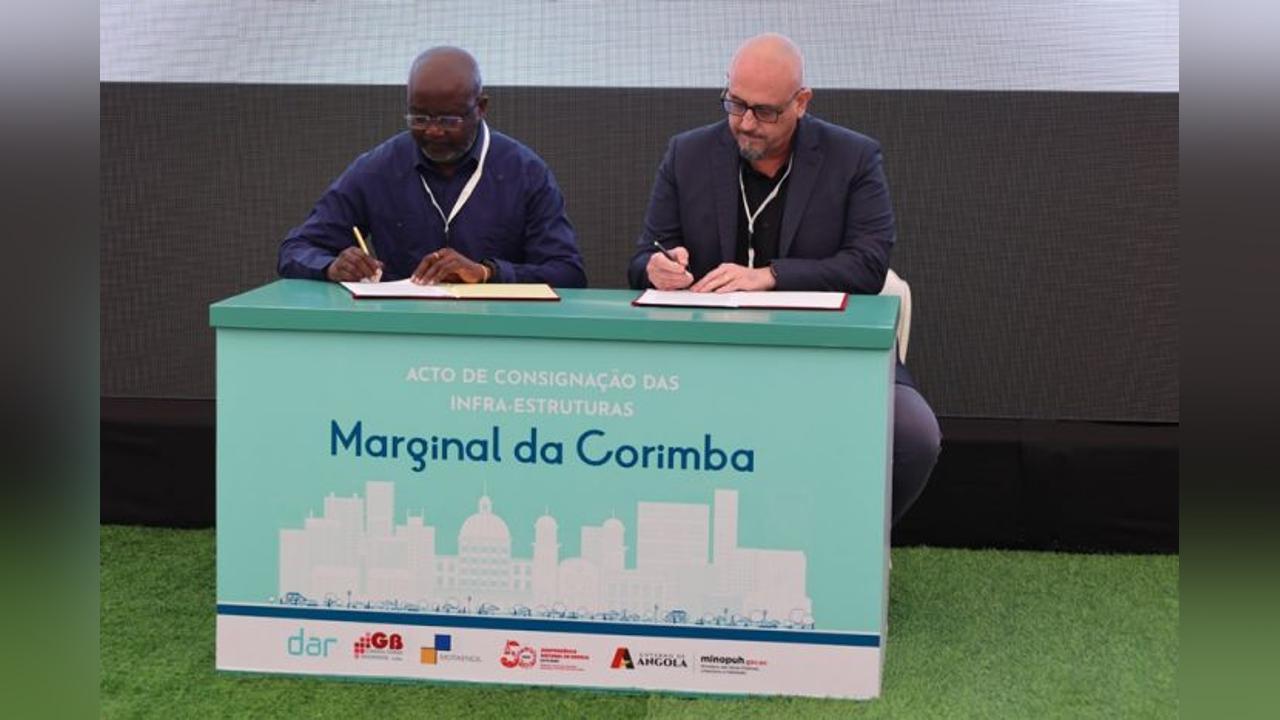Africa-Press – Angola. The Government, through the Ministry of Public Works, Urbanism and Housing, carried out, this Friday morning, the act of consigning the construction, execution and completion works of the Corimba Marginal Infrastructure, in Luanda, which will be completed within the next three years.
The Angolan government this Friday awarded Mota-Engil the contract for the construction of the first phase of infrastructure on the Corimba waterfront in Luanda, budgeted at 245.2 million euros, with financing from Portugal’s credit line.
In his speech, the Minister of Public Works, Urbanism and Housing, Carlos Santos, said that the road network in the city of Luanda is fed by main structural roads, which connect to the center of the Angolan capital, highlighting that population growth has created several challenges to urban mobility.
Carlos Santos stressed that other attempts have already been made to carry out this work on the Corimba waterfront, in the municipality of Samba, but without success “due to incompatible financing issues”.
According to the minister, in 2016, the Government signed a contract with China Railway CR20 to build a fast track and supporting infrastructure that would connect Praia do Bispo to Corimba. However, difficulties in qualifying for China’s credit line hindered its physical execution “at various times.”
In 2021, the Corimba viaduct was completed, but the contract has been suspended and unfulfilled to this day. The Angolan official highlighted that a study found that traveling from the municipality of Talatona to the center of Luanda, a distance of 20 kilometers, can take between one and two hours during peak periods.
This, he said, “translates into a loss of economic productivity and an increase in transportation time and costs, in addition to a series of difficulties that are created, as well as some visible problems with macro drainage.”
The Corimba waterfront infrastructure construction project, to be implemented in three phases, expects the first phase to be completed in 20 months, at a cost of 245.2 million euros, for maritime works, construction of viaducts, the road, interchanges and housing for the relocation of families living in the intervention areas.
“This phase is responsible for providing the conditions for a visible reduction in travel time and costs after 20 months, with improved urban mobility and traffic,” added Carlos Santos. Speaking to the press, the Minister of State for Economic Coordination, José de Lima Massano, stated that the project relies not only on the resources of the Portuguese line but also on a local banking component.
“The initial payment for access to the line itself was made using local banks, and so we have guaranteed resources for the project—hence the note we issued to the contractors—to ensure that the benefits we envision for citizens can actually be delivered within the established deadlines,” he emphasized.
José de Lima Massano highlighted that this is a “structuring, impactful” project, which will affect several dimensions, emphasizing the construction of around 2,000 homes for families living “in less than dignified conditions, particularly in high-risk areas.”
“The project is also transformative from an environmental perspective, and we are fulfilling our own sustainable development objectives by bringing conditions to the city, to this part of the city, in line with what we are envisioning for our National Development Plan, also regarding environmental protection,” said José de Lima Massano.
For More News And Analysis About Angola Follow Africa-Press






